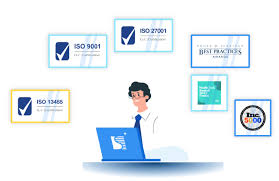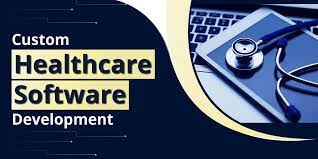Unleashing the Power of Business Innovation
The Essence of Business
Business is the backbone of the economy, driving innovation, creating job opportunities, and fueling growth. It encompasses a wide range of activities aimed at producing goods or services to meet the needs and demands of customers.
At its core, business is about problem-solving and value creation. Successful businesses identify market gaps or inefficiencies and develop solutions to address them. They strive to deliver products or services that not only meet but exceed customer expectations.
Entrepreneurship is a key aspect of business, where individuals take risks to start new ventures and bring their ideas to life. It requires a combination of vision, passion, resilience, and strategic planning to navigate the challenges and uncertainties that come with building a business.
Effective management is crucial for the success of any business. Leaders must make informed decisions, manage resources efficiently, foster a positive work culture, and adapt to changing market conditions. Strong leadership inspires employees to perform at their best and drives organizational growth.
Businesses operate within a dynamic environment shaped by economic trends, technological advancements, regulatory changes, and competitive forces. Adaptability and agility are essential traits for businesses to thrive in today’s fast-paced world.
Collaboration and partnerships are also vital components of business success. By working together with suppliers, distributors, customers, and other stakeholders, businesses can leverage collective expertise and resources to achieve mutual goals.
In conclusion, business plays a fundamental role in society by driving economic development and fostering innovation. It offers opportunities for individuals to pursue their entrepreneurial ambitions and contribute to the growth of their communities. Embracing the principles of ethical conduct, sustainability, and social responsibility is key to building successful businesses that make a positive impact on the world.
Understanding Business: Key Concepts and Common Questions Answered
- What are the four types of business?
- What are business examples?
- What is your business type?
- What is the broad definition of business?
- Is business’s grammatically correct?
- What is the definition of a business?
- What are the 4 types of business?
- What is the concept of a business?
What are the four types of business?
In the realm of business, the four primary types of business structures are sole proprietorship, partnership, corporation, and limited liability company (LLC). Each type has its own set of characteristics, advantages, and legal implications. Sole proprietorship involves a single individual owning and operating the business, while partnerships involve two or more individuals sharing ownership and responsibilities. Corporations are separate legal entities owned by shareholders, providing limited liability protection to owners. LLCs combine aspects of both partnerships and corporations, offering flexibility and liability protection. Understanding these different business types is essential for entrepreneurs when choosing the most suitable structure for their ventures.
What are business examples?
Business examples encompass a wide range of industries and sectors that demonstrate the diverse nature of commercial activities. Some common business examples include retail stores, restaurants, consulting firms, manufacturing companies, technology startups, healthcare providers, financial institutions, and e-commerce platforms. Each of these examples operates within its unique market environment, offering products or services to meet consumer needs and generate revenue. By exploring various business examples, individuals can gain insights into different business models, strategies, and trends that shape the modern economy.
What is your business type?
When asked about your business type, it refers to the legal structure or form under which your business operates. Common business types include sole proprietorship, partnership, limited liability company (LLC), corporation, and cooperative. Each business type has its own set of advantages, disadvantages, and legal implications that determine how the business is managed, taxed, and held liable. Choosing the right business type is crucial for defining the ownership structure, decision-making process, and financial responsibilities of the entity. It is important to understand the implications of each business type to ensure compliance with regulations and to align with your long-term goals and vision for the business.
What is the broad definition of business?
The broad definition of business encompasses a diverse range of activities aimed at producing goods or services to meet the needs and demands of customers. It involves the creation, distribution, and exchange of value in various forms, such as products, services, or ideas. Business is not limited to profit-making enterprises but also includes non-profit organizations and government agencies that operate with specific objectives in mind. At its core, business is about identifying opportunities, solving problems, and managing resources effectively to achieve sustainable growth and success in a competitive marketplace.
Is business’s grammatically correct?
The frequently asked question regarding the correctness of “business’s” revolves around the possessive form of the word “business.” While some may argue that “business’s” is grammatically correct when indicating possession, others contend that using “business'” without the additional “s” is more appropriate in formal writing. Ultimately, both forms are widely accepted, and the choice between them often depends on personal preference or adherence to specific style guides.
What is the definition of a business?
A business can be defined as an organization or entity engaged in commercial, industrial, or professional activities with the primary goal of generating profit. It involves the production, distribution, or provision of goods and services to satisfy the needs and demands of customers in exchange for monetary compensation. Businesses operate within a structured framework that includes management, operations, marketing, finance, and human resources to ensure efficiency and sustainability. Additionally, businesses play a vital role in driving economic growth, creating employment opportunities, and contributing to the overall development of society.
What are the 4 types of business?
There are four main types of business structures commonly recognized: sole proprietorship, partnership, corporation, and limited liability company (LLC). Each type has its own set of characteristics, advantages, and legal implications. Sole proprietorship involves a single individual owning and operating the business. Partnerships involve two or more individuals sharing ownership and responsibilities. Corporations are separate legal entities owned by shareholders, providing liability protection but with more complex governance. LLCs combine aspects of partnerships and corporations, offering flexibility and liability protection for owners. Choosing the right business structure is crucial for determining taxation, liability, management structure, and overall business operations.
What is the concept of a business?
The concept of a business revolves around the idea of an organization or entity engaged in commercial, industrial, or professional activities aimed at generating profits by providing goods or services to customers. Businesses operate within a structured framework that involves planning, organizing, directing, and controlling resources to achieve specific goals and objectives. Key elements of the business concept include identifying market opportunities, managing risks, maximizing efficiency, and creating value for stakeholders. Ultimately, a successful business is one that effectively meets customer needs, adapts to changing market conditions, and sustains long-term growth and profitability.






